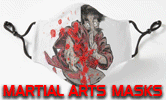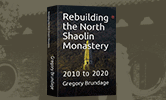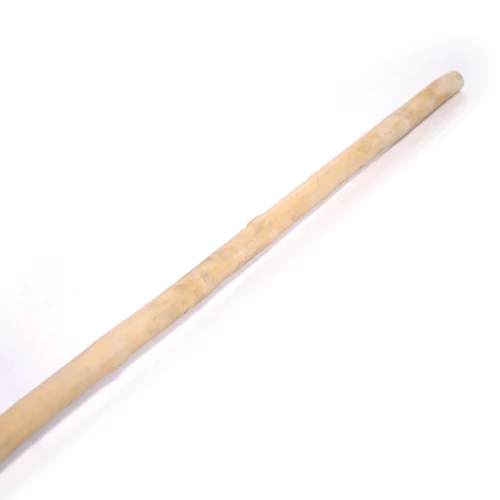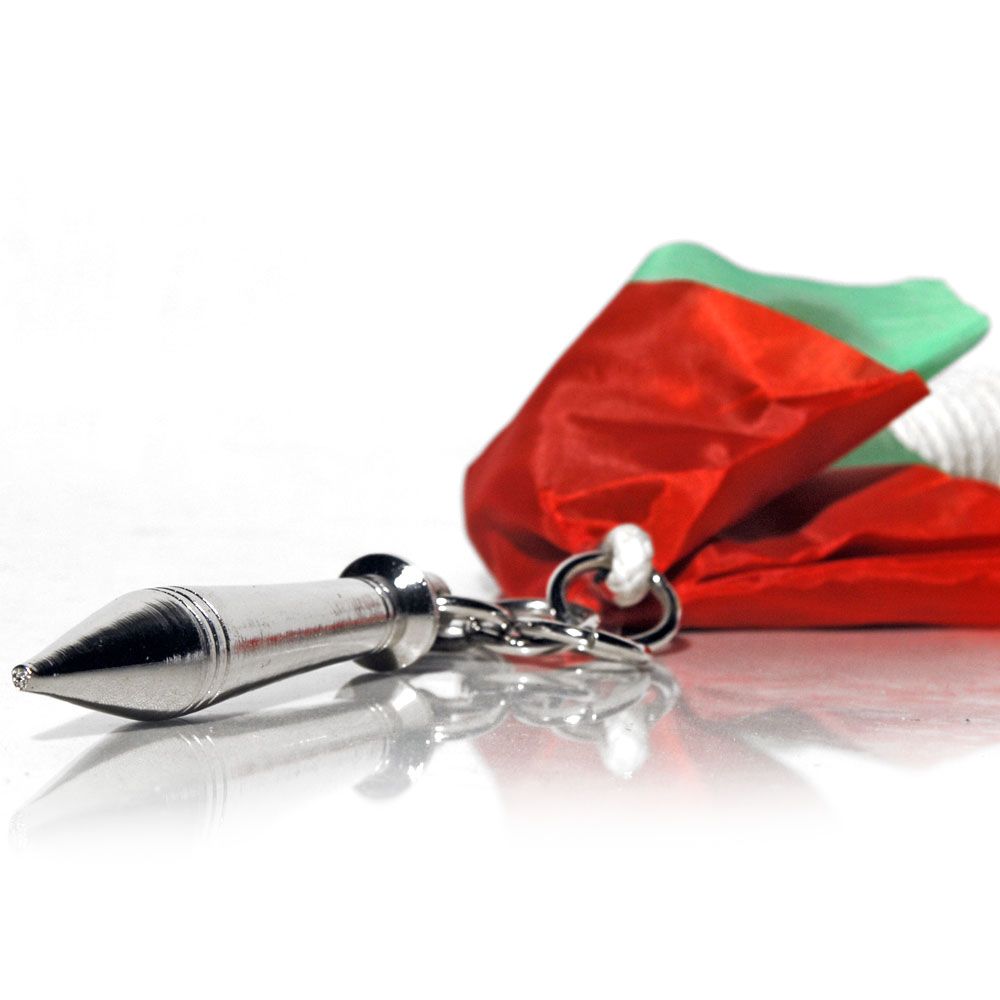Master Zhang Anji Reveals the Secrets of Drunken Sword
By By Gene Ching (with Gigi Oh)
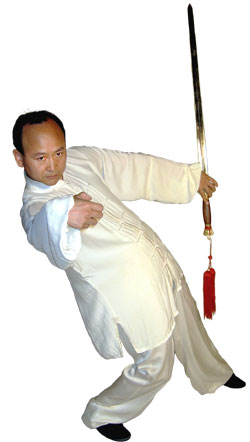 A man walks into a bar. A funny old guy sees that he's looking blue, so he asks, "What's troubling you, lad?" The man sighs. "My name is Lu Yen, and I've failed the examinations twice. Tomorrow is my last chance to succeed, but I have little hope." The old man's eyes sparkle as he replies, "Come with me and I'll show you the way." Lu Yen follows the old man to a cave in the mountains. It's a long journey, and by the time they arrive, Lu is so exhausted that he falls asleep while the old man is warming up some rice wine. Lu wakes up the next morning alone and thinks, "Well, that was weird." He goes to the exams and - much to his amazement - passes with top honors. He becomes very famous and secures a lucrative official position. He marries a beautiful woman and they have many healthy children and grandchildren. Then his fate turns. Political intrigue betrays him, and he is accused of treason. His family is executed before him. His ancestral shrine is desecrated. He is banished to the desolate frontier and dies alone and miserable.
A man walks into a bar. A funny old guy sees that he's looking blue, so he asks, "What's troubling you, lad?" The man sighs. "My name is Lu Yen, and I've failed the examinations twice. Tomorrow is my last chance to succeed, but I have little hope." The old man's eyes sparkle as he replies, "Come with me and I'll show you the way." Lu Yen follows the old man to a cave in the mountains. It's a long journey, and by the time they arrive, Lu is so exhausted that he falls asleep while the old man is warming up some rice wine. Lu wakes up the next morning alone and thinks, "Well, that was weird." He goes to the exams and - much to his amazement - passes with top honors. He becomes very famous and secures a lucrative official position. He marries a beautiful woman and they have many healthy children and grandchildren. Then his fate turns. Political intrigue betrays him, and he is accused of treason. His family is executed before him. His ancestral shrine is desecrated. He is banished to the desolate frontier and dies alone and miserable.
Lu awakens with a start. He's back in the cave with the old man. "You lived your whole life, gained all of your dreams, but lost them all too," the old man says with a grin. "Gain and loss are mortal illusions. Learn to transcend them." Lu Yen falls to his knees kowtowing, "Teach me, master. I will forsake the worldly realm and adopt the name Lu Dongbin (cave visitor)." The old man (who is in reality none other than drunken immortal Zhongli Quan) smiles and says, "Hand me the cups. The rice wine he was warming is almost ready now."
Drunken Sword Master
Most kung fu masters have extraordinary posture, the product of years and years of hard training. Even in casual moments, kung fu masters stand out from the rest with their erect spines and alert eyes. Not so for Master Zhang Anji. He stands askew. His eyes seem almost sleepy; his head cocks to one side with an attitude of laziness or cockiness - it's hard to be sure. Master Zhang is one of China's foremost drunken sword masters, so you never know where he's coming from exactly. Is he wasted? Or is he coiled to strike?
Drunken style is a form of imitative kung fu. Most of the other forms imitate animals like the tiger, crane, snake or even the mythical dragon. Imitative styles are shamanic in nature; practitioners connect with a spirit animal and express themselves by embodying that spirit. In many ways, animal kung fu echoes animal dances performed by shamans in both Asia and the Americas. The kung fu practitioner and shaman act as a medium between worlds; they accrue their power in our "real" world from their connections to the animal spirit world. Few researchers have tried to address an underlying connection between shamanism and imitative kung fu.
There are other forms of imitative kung fu besides those based on animals. These fighting methods mimic failings in the human condition: being manacled, having only one arm, or being blind. The most popular is drunken style. Drunken style has a shamanic element as well, but instead of bonding with an animal, an altered state of consciousness is tapped for empowerment. Many shamans use alcohol and other illicit substances to enter trance states. For shamans, that trance state is the source of their magic, which enables them to forecast the future, control the elements and perform acts of healing. Extending this to drunken swordsplay, one might ask whether it's a mere trick to get an opponent to drop his guard or whether it might be something more.
For Master Zhang, drunken sword became his calling. He was born into a martial family, beginning his martial training at age five and picking up sword by age six. Zhang rose to become China's national champion in straight sword (jian) in 1979, the same year that Jet Li captured the same title for broadsword (dao). Zhang and Li were training together at that time, both members of China's illustrious national demonstration team that traveled overseas for cultural exchanges. One Chinese New Year, Li had just learned drunken sword and was working out in front of a mirror, trying to capture the essence of the movements, when Zhang came in. In honor of the New Year, the two decided to forego their workout and have some drinks instead. Since Zhang was the jian expert, Li consulted his expertise and they discussed swordplay over libations. It was an inspiring moment, because after they had both had a few, they went back to train and realized they had a deeper understanding of drunken sword. Zhang's jian expertise gave him an advantage over Li, and after some more practice, it was clear that Zhang should take over the role as the team's drunken sword specialist.
Zhang went on to capture more top honors in jian, drunken sword and bagua, earning 35 national medals in his competitive career. But after his stint with the national team, he still felt he hadn't achieved the height of his sword skills; so he sought coaching under masters Li Zhenling and Qian Yuanze. Master Qian transmitted his precious dragon sword method to Zhang, adding some closely guarded secrets to his arsenal of sword techniques. Zhang went on to become the chief coach of the Jiangsu Wushu Team. In the mid eighties, Zhang dabbled in movie making, playing Lie Yue in General Children of Yue Fei and Jianxong Wang in Bloodshed Story of the Black Box. Bloodshed Story of the Black Box won the Xiao Bai Hua prize for the highest draw in 1986. He was offered the lead role in Emperor Kangxi Fighting in Wutai Mountain, but turned it down to return to coaching. He recently moved to America where he now teaches students wushu, as well as the elusive art of drunken sword.
A drunken beggar walks into a bar. He's ugly and covered with filth. He goes from table to table, begging for handouts. Everyone is disgusted by him and tries to ignore him. The bartender and the barmaids all deny him service, except for one young servant girl. She takes pity on him and takes him to a back room to avoid the jeers of the others. She offers him a drink. Much to her amazement, the beggar magically transforms into one of the eight immortals, the famous drunken swordsman Lu Dongbin. Immortal Lu rewards the girl with a blessing. She becomes a servant to the imperial family and lives a long happy life until the ripe old age of 135.
No One Under 21 Permitted
The art of deception is fundamental to swordplay. A swordsman relies on a rich arsenal of feints to defeat his adversary. Tricking his opponent into revealing an opening, he takes advantage - with full knowledge of his own ruse - of what has been left exposed. Fakery is even more central to drunken sword, which is wholly based on attempting to fool the adversary. But of all the imitative styles, it is also the least "faked," since drunken stylists are the only practitioners who can directly experience the spirit. An animal stylist can never really be a tiger or dragon; so, ultimately, it all relies on his or her imagination. But a drunken stylist can get drunk, as long as he doesn't drive or operate machinery afterwards. "Yes, you have to drink," confesses Zhang in mandarin. "You shouldn't drink too much to overload. It can hurt your health, and that's counter to the martial arts as a whole."
Zhang is quick to state that he has never performed drunken sword when totally drunk. "That's just between practice," specifies Zhang with a grin. "When you practice, you could have a drink to have the feeling of being halfway drunk. In Chinese martial arts, we say ?loose, but not too loose' (song bu song). After a drink or two, your body can expand more and your posture will be better. Once you get the hang of the feeling, you don't really need to drink anymore, but you should at least have the experience. This is why drunken style is not for kids."
Just as it's hard for a virgin to pretend to be otherwise, it's hard to act drunk without experiencing insobriety. The drunken master appears to be out of control, but only until the opponent drops his guard. "The eyes must have a drunken look," confides Zhang, "halfway open, halfway closed, like when drunk. If the eyes are wide open, it's not drunk. It's a way to fool your opponent - in between getting drunk and being clear. When completely drunk, you're dead. If you're totally drunk, you cannot perform drunken sword. Imitate the shape - the spirit - but await the attack. Suddenly, become wide open and counterattack. If you're really drunk, you cannot do anything like this."
However, there's more to this trick than just acting. If anything, it's closer to method acting. "When you're halfway drunk," divulges Zhang, "you're more brave. You can exceed your limitations, above your normal performance." It is for these very reasons that intoxicants are often connected with shamanic practices.
The notion of sword shamanism brings up an age-old riddle of Chinese swordsmanship - the jianzhi (sword finger). The left-hand jianzhi always compliments straight sword in regular practice. Most teachers propound that the purpose of the sword hand is to poke out an enemy's pressure points. This is an absurd notion; it's tactically illogical. If you have a sword, you strike with the sword. If you're in too close to use the blade, you strike with the pommel. But when sober logic fails, drunken magic can take over. One possible explanation is that the jianzhi is actually some form of mudra, a relic of shamanistic sword practices. The Hindu Pran mudra or "life" mudra is the most similar, even balancing in a yin yang way if the sword is interpreted as a symbol for death; but it would be a stretch to try and show an evolutionary connection.
However, in drunken style, the left hand is held like a cup instead of jianzhi. It's the only exception for this mysterious custom in all of Chinese swordplay. The cup has a symbolic balance too, albeit a western one. Swords and cups were two suits of the Tarot, what evolved into spades and hearts in our modern playing card deck. In drunken sword forms, the practitioner begins in jianzhi, and then pantomimes taking three or four ritual drinks, changing their hand to form the cup. Like the jianzhi, the cup hand is largely a symbolic gesture, but it has some application as a snatching hand, akin to the left hand in dao fighting. In dao, it is often said that you can tell more about the skill of the swordsman by watching his left hand than anything else.
Curiously, the hilt of the sword often serves as the pantomime wine bottle when the practitioner begins. This could be purely a prop of convenience, since the sword must be held in the non-cup hand. But what makes this really intriguing is this convention within drunken empty hand forms. Again, ritual drinking begins the recitation of the form; but without a sword, the practitioner must use the empty non-cup hand to serve the wine. More often than not, the gesture used to imitate the wine bottle is none other than the jianzhi.
Drunken sword tends to raise more questions than it answers. Perhaps that's just the way Drunken Immortal Lu Dongbin would like it. According to legend, a Daoist named Hou Yonghui once asked Immortal Lu about his sword, which was renowned for its power to vanquish demons. Lu viewed his sword as more spiritual than magical, saying, "My sword cuts off chaotic thoughts in your heart that block Daoist cultivation." Hou didn't understand the Daoist lesson, so Lu threw his sword into the air and flew away, baffling poor Hou even more with the magic trick.
Drunken sword can be baffling too, but that's to be expected. While the use of intoxicants for spiritual growth is well established in ancient spiritual practices, it is - and always has been - the razor's edge. It can cut off the chaos or it can cut out the heart, depending on the steadiness of the hand of the wielder. And a steady hand is just what a drunken stylist might lack. Accordingly, it would be as incorrect to interpret drunken sword practice as some sort of consent to drink as it would be not to do so. Cheers!
A swordsman walks into a bar. The bartender immediately recognizes him as the drunken Immortal Lu Dongbin. "Bring me your finest wines!" shouts Lu. Terrified, the bartender complies. After finishing the jars, Lu demands more and soon drinks the bar dry. The bartender sheepishly hands the Immortal the tab. Lu offers a drunken smile and says, "Bring me a brush and some ink." The poor bartender complies once again, worried for the fate of his now depleted business. Lu paints a spectacular crane mural on the wall, and then disappears. The bartender looks at his empty bar and sighs.
Soon word gets out about the magnificent painting by Immortal Lu. People come from all across China to visit the bar, have a drink, and admire the painting. The bartender gets very rich. But the instant that Lu's bar tab is paid, the crane comes to life and flies away, never to return.
Click here for Feature Articles from this issue and others published in
2005 .
About
By Gene Ching (with Gigi Oh) :
Zhang Anji currently teaches at the Golden Eagle Wushu Kungfu Center, 9201 Scott Drive, Rockville, MD 20850 301-340-1278
![]() Print Friendly Version of This Article
Print Friendly Version of This Article






